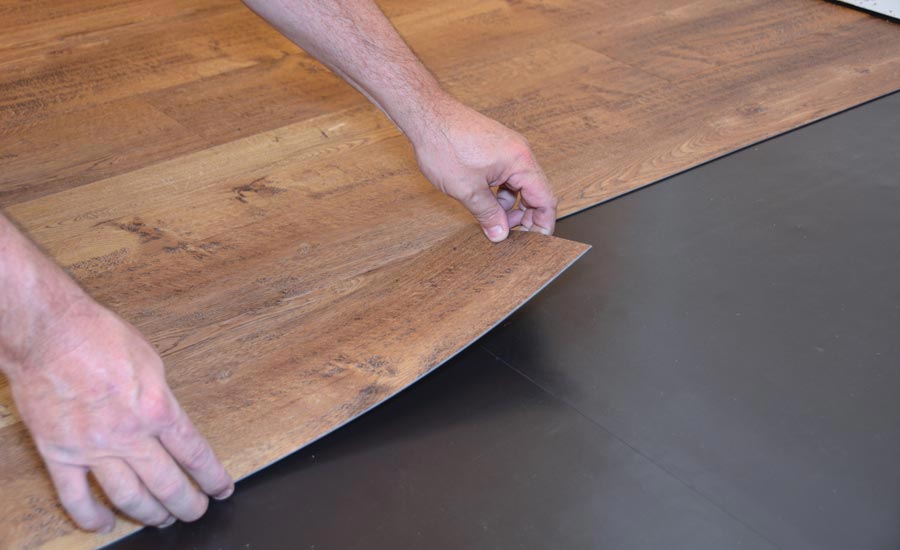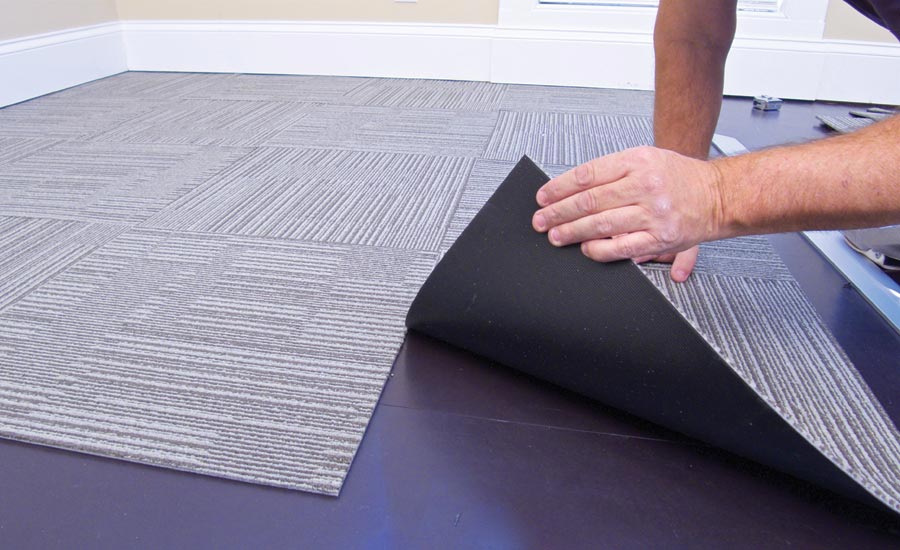New Technology: WFCA Launches Magnetic Underlayment System




The World Floor Covering Association (WFCA) will launch a magnetic flooring system at The International Surfaces Show (TISE) in Las Vegas in January.
MagneBuild by Magnetic Building Solutions (MBS) is a magnetic underlayment system that uses interchangeable magnetic technology as the foundation for flooring. The product measures 1 mil on the surface and .3 mil on the back of the flooring product, which allows the adhesion between the two surfaces. The underlayment also functions as a moisture barrier, crack isolation membrane and a sound barrier.
“Every product you can imagine in flooring works with this system,” said Scott Humphrey, CEO of WFCA. “It’s a three-foot width of magnetic underlayment that is rolled out and works as a loose-lay installation for many types of flooring, including LVT [luxury vinyl tile], WPC [wood plastic composite], carpet tile. It’s very simple to install, lays down permanently and never has to be replaced. At the most, it may lose 1% of its magnetism every decade, so it’s there for life.”
The endeavor aims to provide solutions for a variety of challenges facing the independent flooring retailer.
First, Humphrey said it could help with the installation crisis by allowing installers to install more flooring faster with less training, and it allows the installer to make more money than they can today with less wear and tear on their bodies, extending the life of their careers.
Second, flooring buying trends have changed dramatically with the rise of hard surface flooring, and consumers aren’t replacing their flooring as often.
“This product could make the purchase cycles for flooring shorter because the technology makes it easier for the consumer,” Humphrey said.
It also provides an opportunity for consumers to change out their flooring by season or mood. For example, if a consumer wanted something warmer in the winter and cooler in the summer, they could swap out flooring from soft surface to hard surfaces in about an hour in a standard room. The technology may also encourage consumers to come into flooring store for more than just flooring.
“Ironically, more flooring has gone on the walls this year than in the last 20, so is it possible that we could give consumers a reason to come to the flooring store for more than just flooring? Yes, with this system you can because it’s that simple,” Humphrey said.
In addition, he noted that this technology may provide flooring retailers with another way to connect with millennial consumers: “They are very comfortable researching for themselves online and going into a big box store where the big box store doesn’t know as much as them, but we also know millennials are also amazingly loyal. Starbucks research shows that local coffee shops are their biggest competition because millennials are loyal, but you have to make that connection. We saw this as a way to get millennials to come in [to the independent dealer].”
The WFCA set up MBS as a separate limited liability corporation that is a for-profit organization, and Humphrey said the majority of the WFCA board was in favor of pursuing the endeavor.
“We would never do anything that conflicts with our purpose statement for WFCA, which is we exist to ensure the success and profitability of professional flooring dealers to represent their common interests,” Humphrey said. “We want to help every professional flooring dealer.”
The organization is in talks with several manufacturers to license the patent-pending technology.
“It will allow us to enter a facility that doesn’t have time and also solve a lot of the needs where they are crunched on timeline to get in and out of a facility quickly,” said Michael Freedman, president and CEO of FloorFolio. “We can go over an existing floor and within 30 minutes be out of the room.” For the end user, such as healthcare facilities, it allows them to have floors redone without losing use of rooms and equipment for extended periods, and new visuals can be swapped out quickly in the future. Aspecta by Metroflor is also in talks with the WFCA to develop a product that is compatible with the technology.
“Since I’ve taken this role as CEO of WFCA, which is a little over four years, I don’t ever want us to be seen as the people who identify the problem; I want us to be seen as the people who solve this,” Humphrey said. “So, we could have sat back and watched this, but what if 10 years from now, someone asked if we knew about it? I would have a hard time answering for that.”
Looking for a reprint of this article?
From high-res PDFs to custom plaques, order your copy today!








